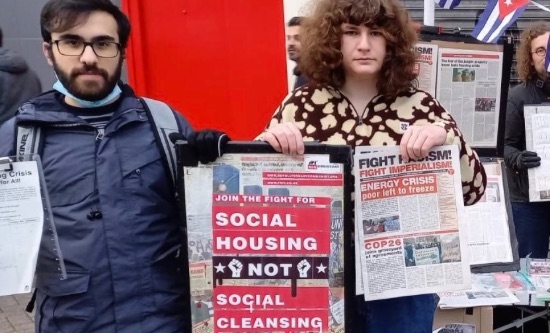
A new form of slum landlordism has emerged from the deepening capitalist crisis. Private housing providers have found a new avenue for profit in so-called ‘exempt housing’. Because such housing purports to offer an ‘above minimal’ level of support to vulnerable and hard-to-house individuals, including prison leavers, rough sleepers, migrants, people with alcohol or drug abuse issues and victims of domestic violence, it is exempt from the normal cap on Local Housing Allowance (LHA), and is generally funded directly by the Department for Work and Pensions. This allows organisations providing this type of supported housing to charge staggeringly high rates to claimants living in their properties. A 2019 study found that some providers were charging as much as £200 per week in Birmingham for a room in a multi-occupancy home, despite the LHA cap for shared accommodation being just £57. JOE SMITH reports.
‘The capital of exempt housing’
Labour-run Birmingham City Council (BCC) was initially apparently happy to hand out licences to anyone who came along claiming to be a supported housing provider, as it seemed to solve, at little cost to them, the problem of an increasing register of empty homes and a rising number of ‘troublesome’ homeless people. Inevitably, a large number of supported housing providers turned out to be nothing of the sort and the council has been left with egg on its face, desperately trying to rein in a sector that has now operated for years without governance or oversight.
In October 2021, the housing charity Crisis found that more than 150,000 households in England and Wales were being accommodated in what it called this ‘dangerously unregulated’ housing tenure. It pointed out that many providers were motivated solely by money, charging higher rents for support they had no intention of providing. And Birmingham is the national capital of exempt accommodation, with the number housed this way by the council growing from 3,679 in 2014 to more than 22,000 in 2021.
At the beginning of December 2021, Birmingham City Council admitted that it had referred nine exempt accommodation providers to the Department of Work and Pension for fraudulent claims. Earlier in the year, the registered provider Prospect Housing, which managed nearly 2,000 properties across the West Midlands was forced to close after being found to be ‘non-compliant’ with standards for exempt housing. At the end of 2020, Green Park, which owns 897 properties across London and Birmingham, was found to be operating as a ‘for-profit’ provider and was stripped of its exempt status. But these cases are only the tip of the iceberg, with the council granting registered status to a further 62 providers in the last year alone.
Typically, the accommodation is provided by housing associations or community interest groups working with managing agents. Prospect Housing, for example, had been renting rooms from managing agent Midland Living at a rate of £189 per week for rent and service charges. Those rooms were then rented out by Prospect for £237. But increasingly we are beginning to see individual landlords working with service providers to rent out homes that they would struggle to rent out otherwise. Exempt housing appears in clusters around the city; in areas where there were empty properties, where house prices are falling and where rents are generally lower already. Much of this housing is in poor condition. Providers are also incentivised to put as many benefit claimants into the properties as possible, turning them into houses of multiple occupancy (HMOs). And so a whole range of people in need find themselves in a house with others who also have complex issues, trauma and addictions – with negligible support.
A perfect storm of social need
The boom in support/exempt housing is a result of the continual decline of decent social housing combined with cuts to services. In May 2016 Birmingham Live reported that the council was planning to sell off more than 1,000 social houses a year, every year, for years to come. In the last few years land prices in the West Midlands have been rising faster than average across the country (Property Reporter, October 2021) and social housing is being replaced by lucrative private developments.
The Midlands have endured some of the biggest cuts to public health – £17.80 per person compared to an England average of £13.20 per person. There’s been a substantial cut in support for victims of domestic violence, and mental health services in the region are covering ever larger areas with less funding. All this is combining into a perfect storm of social need, with a seeming exponential rise in demand for supported forms of housing.
Fight for decent housing for all
The answer to this scandal can’t just be better regulation of HMOs, or more investigations into the compliance of providers – although that is clearly necessary. Exempt housing is a product of a system that is failing the working class. The rise in street homelessness, domestic violence, drug and alcohol abuse, and serious mental health issues are all a product of a fractured, brutal capitalist system that denies people everything that is needed for a dignified life and sense of worth. We need to demand decent, permanent social housing for all; adequate mental health services and support for those who need them and an end to the Labour council’s endless cuts to desperately needed community services. But more than that we need to fight for a system based on human need and not private profits – that is, socialism.
Fight Racism! Fight Imperialism! No 286, February/March 2022




